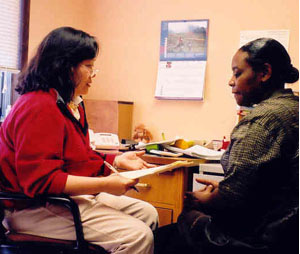The Dress We Obsess About (Eating Disorders)
 Two words can strike fear and unrealistic expectations for many of us ladies out there.
Two words can strike fear and unrealistic expectations for many of us ladies out there.
The dress.
It’s probably a safe bet to say there has been at least one which has plagued us. It may be that prom dress, eradicating high school awkwardness. It may be the fairytale torture known as the perfect wedding dress, transforming us into the bride to end all brides. It may also be any variety of special occasion dresses: the high school reunion show stopper, the special event evening gown, created to dazzle or the pageant dress, guaranteeing us a tiara.
The dress. The notorious, nail biting, nerve-wrecking, insanity creating dress. Been there? If not, be patient, you probably will be.
There have been a lot of desperate diets and exercise regimes plotted, all in the name of the big dress. We push, pull, cinch, torture, starve and manipulate ourselves into all kinds of predicaments. Like when I was a bridesmaid at my cousin’s wedding.
The Dress We Obsess About (Eating Disorders) Read More »



 eating disorder odyssey, recovery included, in my book,
eating disorder odyssey, recovery included, in my book, 

